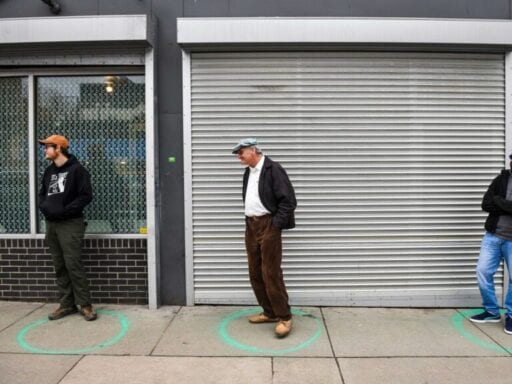Trump’s call to end coronavirus restrictions by Easter is wildly out of step with what the public wants,
On Tuesday, President Trump signaled that he wants the extraordinary efforts the nation has taken to arrest the spread of the coronavirus to halt by Easter, April 12. If that happens, the likely result will be more infections, an overloaded health care system, and more deaths.
New polling also suggests that Trump’s desire to end this period of quarantines and sheltering in place is out of step with the public’s wishes. In a poll by Morning Consult taken March 20 to 22, a plurality of Americans said they strongly support a “national quarantine,” and nearly three-quarters of Americans express at least some support for the idea.
the Trump administration has shut down the possibility, but Americans want a national shutdown. new on @MorningConsult:https://t.co/GShLujHznY pic.twitter.com/X48HW3KwvU
— Yusra Murad (@ymurad__) March 25, 2020
Many Americans are already engaging in some form of social distancing, meaning they are either voluntarily keeping their distance from other people or are subject to a government order requiring them to do so. A “quarantine” would be an especially strict form of such distancing. Ordinarily, someone subject to a quarantine will remain in their home or in designated areas, with no exceptions. Although, as the Morning Consult polling question acknowledges, some exceptions to a nationwide quarantine order would need to be made to allow people to obtain food and medicine.
It’s also worth noting that Trump almost certainly does not have the formal authority to declare a national lockdown under existing federal law, and it is doubtful that Congress has the constitutional power to order people to remain in their homes (though Congress most likely could order businesses to shutter temporarily). If a nationwide lockdown were to happen, it would likely be because 50 individual state governments all independently reached the conclusion that such a lockdown was necessary.
Trump, moreover, does not actually have the power to declare an end to social distancing. Millions of Americans are doing so voluntarily, or because their private employers made the decision to direct their employees to work from home. It is highly unlikely that any existing federal law gives the president the power to order individuals who choose to remain at home to step out into the world.
The federal public health laws governing quarantines, for example, generally only allow the federal government to act when someone tries to enter the country from abroad, or when they attempt to cross state borders.
While there are some parts of the country where formal “shelter in place” orders have shut down nonessential businesses and even turned going over to a friend’s house into a misdemeanor, these orders come from state or local governments. It is likely that the Constitution permits Congress to enact a law preempting such an order from a state or local government. But Congress does not work for the president.
If Trump wanted the federal legislation forcing businesses to reopen, he would need to get the House of Representatives, with its Democratic majority, to sign off on such legislation. And even if he did manage to get such a law through Congress, it is not entirely clear that the current Supreme Court would uphold it.
There are already signs of a partisan divide on the question of whether extraordinary measures are necessary to prevent the spread of the coronavirus — a gap that is apparent in the Morning Consult poll. Similarly, a recent Gallup poll found that 78 percent of Democrats are avoiding small gatherings, while only 56 percent of Republicans are doing so.
One poll found that Democrats are more likely than Republicans to be worried that a family member could be infected, by a 28 percentage point margin. Other polls show that Democrats are 18 percentage points more likely to avoid large crowds, and that they are 10 percentage points more likely to say they wash their hands or use disinfectant more often than they usually would.
While Trump does not have the formal power to force Americans out of their homes, he still has tremendous rhetorical power over his fellow Republicans. If he told Americans to start living their lives as normal, it is likely that at least some Republicans would comply. Democrats, meanwhile, would be much more likely to ignore the president. This divide would also likely be reflected among state and local officials.
Democratic mayors and governors would likely leave in place orders closing businesses and requiring residents to stay at home, while Republican officials would be more likely to march in lockstep with the president.
In the short term, that would produce a health crisis that disproportionately impacts people who live in Republican-governed states. In the longer term, however, coronavirus cares little about partisan affiliation or state borders. If the disease grows out of control in Alabama, it won’t be long before it spreads to more Democratic states as well.
Author: Ian Millhiser
Read More



